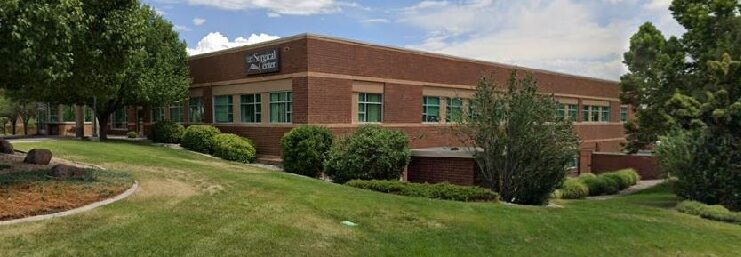Preparing for Surgery
Steps to Follow Before Your Procedure
If you are preparing for a procedure at Grand Valley, consult with your physician and read the below information. If you have any questions, please do not hesitate to call us at 970-298-7800.
Things to Consider Before Your Procedure
- If your surgeon has given you orders for labs or an EKG, please arrange to have the tests completed before the day of your surgery.
- A nurses will call you 1 to 2 business days before your surgery. This call is to get a short medical history so we know how to best meet your needs and answer any questions you may have. We will also go over any other instruction you need for the day of your surgery. If you miss our call please call the surgical center during our regular business hours M-F 7:30 am – 5:00 pm (970) 298-7897.
- If you will need any special equipment after your surgery please bring them with you the day of your surgery for teaching purposes.
- If your surgeon has given you a prescriptions to take after your surgery. You may bring your prescribed pain medication with you.
- Arrange for someone to drive you home. If you do not have a friend or family member to drive you home, please arrange alternate medically approved transportation; taxis are excluded. For your own safety, you will not be permitted to leave alone. Patients sometimes feel a little drowsy, and perhaps dizzy, for several hours after their surgery and therefore are not allowed to drive for 24 hours after surgery. It is also important for someone to stay with you for the first 24 hours after surgery. If you live alone, please arrange to have a friend or relative stay with you.
- Avoid alcohol and recreational drugs for 24 hours before your surgery.
- Do not eat or drink after midnight before your surgery, unless instructed otherwise by your physician and nurse that calls you prior to your procedure.
The Day of Surgery
How to Get Ready
- Bathe or shower the morning of your surgery
- Dress in loose, comfortable clothing
- Do not wear make-up or body lotion
What to Bring
- Your photo ID, insurance information and co-payments
- Any prescribed pain medication
- Any special equipment you may need
- Do not bring valuables (jewelry).
When You Arrive
- Plan to arrive at the surgical center 1.15 hour before your scheduled surgery time unless otherwise instructed.
- Please park in Lot J located at the South East corner of 7th and Patterson.
- Check in at the reception desk. You will be asked to verify your personal and billing information and sign some forms. Please bring your insurance information with you.
- We will escort you to the pre-operative area where a registered nurse will prepare you for surgery.
- The anesthesiologist will visit with you prior to the surgery to discuss your anesthesia and answer questions.
- The operating room nurse will meet with you and take you into the operating room.
Special Instructions for Children
- At least one parent or guardian must remain in the surgical center throughout your child’s stay.
- Bring a comfort item such as a favorite toy or stuffed animal.
- If your child uses a bottle, sippy cup, or pacifier. Bring the bottle with his or her usual formula.
After Your Surgery
- After surgery you will be brought to the recovery area where you will be monitored until you are ready to go home.
- Pain control is very important to your recovery. Your nurse will give you medication to help control any pain, so you must let him/her know how you are feeling. Rating any pain will help the nurse determine the most appropriate medication.
- Your nurse will also have medication to treat other side effects you may experience from your anesthesia, such as nausea.
- You should be ready to go home when your vital signs are stable and pain and nausea are under control. Before you leave, your nurse will go over the home care instructions with you and your ride home. You will be given a written copy to take with you.
- Remember, if you’ve had anesthesia or any sedation, you cannot drive yourself home.
- A nurse will attempt to call you the next business day to see how you are feeling and if you are experiencing any complications from your procedure.
After You Get Home
- Take your pain medication according to the directions.
- Plan on going directly home and resting for the remainder of the day.
- Unless otherwise instructed, walking short distances in your home helps prevent complications by promoting circulation in your legs. Your surgeon will instruct you on resuming your normal activities.
- If you are required to be inactive, it is important to take frequent deep breaths and move your legs.
- If your surgery was on an arm or leg, keep it elevated as much as possible.
- You may resume your normal eating habits as soon as you feel able. If you are still experiencing some nausea, try small amounts of clear liquids until the nausea passes.
- Do not drive or drink alcohol until you have stopped taking your pain medication.
Please contact your surgeon’s office if any of the following symptoms develop. If in doubt, please call. If you cannot reach your surgeon, call 911 or have someone take you to the emergency room immediately.
- Excessive bleeding
- Temperature greater than 101° for 24 hours
- Ineffective pain control
- Prolonged nausea or vomiting
- Circulation problems in the operative area
- Inability to urinate
- Any surgery-related concerns






